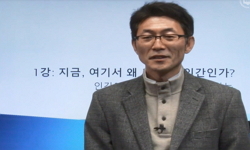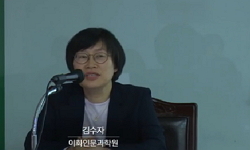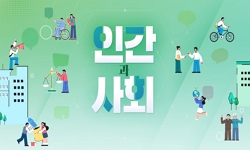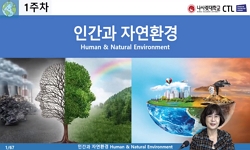이 연구는 해방직후(1945∼1948)의 문학담론을 ‘민족국가와 민족문화 건설을 위한 좌우익의 근대기획’이라는 구도로 재구성하여 그 내적 특질과 의의를 밝히는 것을 목적으로 한다. 이를 통...
http://chineseinput.net/에서 pinyin(병음)방식으로 중국어를 변환할 수 있습니다.
변환된 중국어를 복사하여 사용하시면 됩니다.
- 中文 을 입력하시려면 zhongwen을 입력하시고 space를누르시면됩니다.
- 北京 을 입력하시려면 beijing을 입력하시고 space를 누르시면 됩니다.
해방직후의 문학담론 연구 = (A) study on the literary discourse directly after the liberation of Korea (1945~1948)
한글로보기https://www.riss.kr/link?id=T8376112
- 저자
-
발행사항
서울 : 연세대학교 대학원, 2002
- 학위논문사항
-
발행연도
2002
-
작성언어
한국어
-
주제어
담론 ; 근대기획 ; 민족 ; 민족국가 ; 민족문화 ; 시간의식 ; 인민 ; 인간 ; 아동담론 ; 여성담론 ; 언어담론 ; 고전담론 ; discourse ; modern scheme ; nation ; nation-state ; national culture ; consciousness of time ; people ; human ; children discourse ; women discourse ; language discourse ; classic discourse
-
KDC
810.906 판사항(4)
-
발행국(도시)
서울
-
형태사항
v, 124 p. ; 26 cm.
-
일반주기명
지도교수: 신형기
- 소장기관
-
0
상세조회 -
0
다운로드
부가정보
국문 초록 (Abstract)
이 연구는 해방직후(1945∼1948)의 문학담론을 ‘민족국가와 민족문화 건설을 위한 좌우익의 근대기획’이라는 구도로 재구성하여 그 내적 특질과 의의를 밝히는 것을 목적으로 한다. 이를 통해 해방직후 국가건설의 기획 속에서 문학담론들이 전개되는 양상과 의의를 고찰하려는 것이다. 해방직후 좌우익은 문화적 정체성과 동질성을 강화하여 민족 주체를 정립하고 이를 단위로 한 민족국가를 수립하려 한다. 따라서 문화건설과 민족주체 정립의 기획은 곧 국가건설의 기획과 맞닿아 있는 것이었으며 문학담론은 이 속에서 다양한 대상과 관계 맺으며 분출하게 된다. 이 연구가 이 시기의 문학론을 ‘나라만들기’의 기획과 연관하여 파악하는 이유가 바로 여기에 있다.
좌우익 모두는 해방직후의 상황을 ‘단절기’이자 ‘공백기’로 인식하고 새로운 국가와 문화를 건설함으로써 이를 극복하려 한다. 새로이 건설될 국가와 문화가 ‘민족’을 단위로 하여 성립되는 것이었기에 좌우익 대결의 핵심에는 바로 ‘민족’이 놓여 있었다. 좌익은 ‘민족’을 근대사회의 역사적 형성물로 보고 이를 새로이 창조하려 하였는데 이는 비서구 주변부로서의 조선의 특수성, 즉 조선의 ‘중층적’ 상황을 인식한 결과라 할 수 있다. 신(新)인간의 모델로 제시된 ‘인민’을 중심에 두고 민족을 재창조하려 한다(‘인민/민족’의 형성). 우익은 해방직후의 단절을 보편적이고 본질적인 ‘인간’성의 구현으로 극복하려고 하였다. 우익 문학론의 원리이자 국가건설의 이념은 바로 보편적 운명을 공유한 ‘인간’으로 표상된다. 우익은 이를 절대적인 가치기준으로 삼아 좌익을 비판하고 나아가 서구중심의 근대를 지양하고자 하였다. ‘민족’의 의미망은 이러한 ‘인간’을 중심으로 구성되었으며, 따라서 일련의 담론과정에서 ‘민족’은 비역사적이고 본질적인 ‘인간’과 동일한 범주에 속하게 된다(‘인간/민족’의 형성).
이처럼 좌우익이 구성하는 ‘민족’의 개념은 매우 이질적인 것이었는데, 이는 좌익이 과도기적이고 진보적인 시간의식을 가진 데 반해 우익은 비역사적인 시간의식을 지녔기 때문이었다. 좌익이 지닌 과도기적 시간의식은 ‘신(新)’이라는 형용사에 질적 가치를 부여하게 된다. 이는 과거의 낡은 시간과의 대조를 통해 획득되는 것으로, 이에 따라 좌익은 현재를 과거와 대립되는 시기로 인식하고 과거와의 불연속성을 강조한다. 이에 반해 우익은 역사적인 시간의식에서 일탈하여 초월적이고 보편적인 가치를 지향하고자 하였다. 우익은 과거와의 대립이 아닌 과거와의 이어짐을 추구하였으며, 이에 따라 민족정신의 원형을 되찾고자 하는 움직임을 보인다.
이러한 좌익과 우익의 대립은 국가의 주체와 문화의 토대를 세우기 위한 미시담론들에서 뚜렷하게 표면화되고 있다. 즉 좌익은 ‘인민/민족’을, 우익은 ‘인간/민족’을 주체로 정립하여 문화를 건설, 궁극적으로는 신국가를 세우려 했던 것이다. 이 과정에서 아동과 여성은 새로이 국가의 구성원으로 호명된다. 특히 좌익은 아동을 순진함의 원형으로 사고했던 식민지 시대와는 달리, 미성숙에서 성숙의 단계로 성장해야 하는 역사적 인간으로서 새로이 발견한다. 여성은 문화적 자아건설을 이룩하여 국가의 주체로 정립될 것을 요구받았다. 여성을 국가주체로 호명하는 과정에서 문학은 여성을 정치적 영역으로 끌어들이는 계몽의 전위로 활동한 한편, 여성을 사적 영역에 안착시키는 젠더(gender)분리의 역할을 동시에 수행하게 된다.
언어와 고전은 ‘민족’의 동질성과 정체성을 정립해줄 문화적 토대로서 주목되었다. 해방직후의 언어담론은 언어도구관과 언어사상일체관의 대립을 보여주고 있다. 그러나 언어관의 차이에도 불구하고 양자는 모두 국어의 재건을 주장하게 된다. 민족을 국민으로 재호명하는 시기, 국어는 이를 위한 보이지 않는 봉합선으로 사용된 것이다. 고전담론은 위기를 극복하여 창조를 지향하고자 하는 움직임 속에 놓여 있었다. 좌익에게 있어 ‘고전’은 세계문학을 아우른 개념이었으며 따라서 문화의 대등한 교류를 뜻하는 ‘번역’담론과 맞물러 진행된다. 우익은 고전담론을 전통담론으로 흡수하여 민족정신의 원형을 찾으려 했으며 과거의 유산을 기반으로 현재의 민족정체성을 확립하려고 했다. 특히 고전담론은 ‘단절기’라는 위기의 시대에 출현하는 담론으로, 30년대 고전부흥론과 50년대 전통론을 연결하는 지점에 위치한다고 볼 수 있다.
근대국가는 문화적 동질성을 바탕으로 수립되며 아동과 여성을 공동체의 구성원으로 새로이 호명하고 과거의 기억을 관리하여 정체성을 확고히 한다. 이렇게 본다면 해방직후는 임화의 말처럼 ‘근대의 압축적 실험기’로서 의미를 지닌다고 볼 수 있다. 그러나 해방직후 근대기획의 중심에는 ‘나라만들기’가 있었기에, 좌우익 담론에는 해방을 지향하는 동시에 배제와 통합이라는 또다른 억압적 논리가 작동하는 근대국가의 양면성이 필연적으로 내재되어 있다고 할 수 있다. 결국 해방직후의 문학담론은 ‘단절’과 ‘공백’을 극복하여 집단 정체성을 수립해 가는 과정을 통해 근대실현의 의의와 한계 역시 보여주고 있는 것이다.
다국어 초록 (Multilingual Abstract)
This study aims to find out the internal characteristics and significance of literary discourse right after liberation by reorganizing it in the structure of 'modern scheme of the left and the right to establish a nation-state and national culture.' ...
This study aims to find out the internal characteristics and significance of literary discourse right after liberation by reorganizing it in the structure of 'modern scheme of the left and the right to establish a nation-state and national culture.'
Through this, the phase and significance of how literary discourse had developed in the scheme of 'nation-making' is also examined. After the liberation, right and left wings tried to set up a nation-state by enhancing cultural identity and homogeneity. That's the reason why this study intends to relate literary discourse of post-liberation to the scheme of 'nation-making'.
What is distinguishing about aa society that experienced a colonial period is separation of 'ethnic' and 'nation'. In a society that established modem state autonomously, 'ethnic' and 'nation' are symbolic form endowed on individuals, consolidated into 'Nation.' To Koreans, the experience of the West could only be realized along with liberation, Accordingly, the scheme to construct a modern state after liberation was intended to rename the nation as the main body of a nation, which means the establishment of new identity as well.
Both right and left wingers recognized the situation after liberation as 'discontinuation' and 'vacuum' and tried to overcome it by establishing a new state and culture. As the newly-established state and culture was organized with 'nation' as its unit, the 'nation' was the critical concept in the confrontation of the left and the right.
The Left, seeing 'nation' as a historical formation, tried to recreate it, which was the result of acknowledging the special situation of Chosun as a periphery of non-western state, that is, the 'overdetermined' situation of Chosun. 'people,' presented as a model of new-human, was also a constitutive principle of 'nation'. Accordingly, the left tried to recreate 'nation' with 'people' in the center.(formation of 'people/nation')
Right-wingers tried to overcome the 'discontinuation' through the embodiment of universal and essential 'humanity.' The ideology of state-making and the principle of rightist literature is represented as the 'human' that shares universal destiny. The right regarding this as an absolute standard of value, criticized leftist and further sublated the West-centered modernity. The right attempted to recreate the 'nation' with 'human' in the center, and thus in a series of discourse. The meaning of 'nation' was constituted with this sort of 'human' in the center and 'nation' came to belong to the same category as unhistorical and essential 'human'.(formation of 'human/nation')
Like wise, the concept of 'nation' was very disparate to leftists and rightists, as the former had transient and progressive consciousness of time, while the latter had unhistorical one. The leftists' transient consciousness of time confers qualitative value upon the adjective "New," which can be acquired by contrast with the past. They emphasize the discontinuity from the past, recognizing the present as antagonistic to the past. On the contrary, rightists tried to direct to transcendental and universal value, deviating from historical consciousness of time. They pursued the continuity from the past and showed move to recover the prototype of national spirit.
The confrontation of literary theory and modern scheme between the left and the right had come to the fore at the level of microscopic discourse designed to set up the foundation of culture and the main body of the state. In a word, the left intended to promote culture and ultimately establish a new state with 'people/ nation' in its center, and the right with 'human/nation' in its center.
In the process, children and women are called in as constituents of new state. Especially, unlike colonial period when leftists considered children as the prototype of innocence, children started to be newly viewed as a historical human that should step up from immaturity to maturity. Women are asked to establish cultural self and to be reborn as the main body of the state, during which literature played two roles enlightenment that embraced women into political sphere and separation of gender that settled women in the private territory.
Language and classic were noticed as a cultural base to homogeneity and identity of the 'nation' The language discourse after liberation showed the confrontation of "view of language as a tool" and "view of language and thought as an integral whole." However, in spite of the difference of outlook on language, both sides insisted on the reconstruction of Korean(in the meaning of national language). In the period when the nation is renamed as people, Korean was used as an invisible seam.
Classic discourse lay in the move to overcome the crisis and direct to creation. To the left-wing, 'classic' means a concept including the world literature, and includes translation as well. On the other hand, right-wing tried to embrace classical discourse as a traditional discourse and prototype of national spirit and establish the present national identity based m cultural heritage. Especially, classical discourse appeared in a critical period, 'discontinuation' and was situated in the point that connects the revival of classic in the 1930s and in traditionalism the 1950s.
Modern state is established with cultural homogeneity on its base, renaming children and women as manage the past memory and solidify identity. Taking this into consideration, the post-liberation period has aa meaning, like Im-Hwa says, as compressive experimental period of modernity.' However, since 'establishing a state' was at the center of the modernity scheme, the double-sidedness of modem state- was inevitably inherent, inclination to liberation on one side and another oppressive logic, exclusion and integration, on the other side.
In conclusion, literary discourse right after liberation also showed the significance and limit of modem scheme through the process of establishing collective identity by overcoming 'discontinuation' and 'vacuum.'
목차 (Table of Contents)
- 차례
- 국문요약
- I. 서론 = 1
- 1. 연구목적 및 대상 = 1
- 2. 연구사 검토 = 5
- 차례
- 국문요약
- I. 서론 = 1
- 1. 연구목적 및 대상 = 1
- 2. 연구사 검토 = 5
- 3. 연구방법론 = 9
- II. 해방직후 문학담론의 구도 및 전개 = 13
- ① 좌우익 문학론의 성립 = 13
- 1. 좌우익 문학단체의 분화 = 13
- 2. 좌익의 문학론 : ‘인민/민족’의 형성과 과도기적 시간의식 = 18
- 1) ‘인민’의 이념 - 조선현실의 ‘중층성’에 대한 인식과 ‘인민’의 내포 = 19
- 2) ‘인민/민족’의 형성과 과도기적 시간의식 = 28
- 3. 우익의 문학론 : ‘인간/민족’의 형성과 비역사적 시간의식 = 32
- 1) ‘인간’의 이념 - 보편적 절대원리의 확립과 이항대립적 논리 = 33
- 2) ‘인간/민족’의 형성과 비역사적 시간의식 = 42
- ② 민족국가의 주체 건설론 = 46
- 1. 미성(未成)에서 완성(完成)으로 - 단계적 인간관의 확립 : 아동담론 = 46
- 1) 새로운 역사와 새로운 인간의 창조 - ‘아동의 발견’ = 47
- 2) 아동의 특수성과 문학적 반영의 문제 - 아동문학론의 전개 = 49
- 3) 미성(未成)에서 완성(完成)으로 - 해방직후 아동담론의 의미 = 54
- 2. ‘건설의 주체’이자 ‘생활의 주재자’ - 문학의 이중적 역할 : 여성담론 = 58
- 1) ‘완미(完美)한 인간’으로 발견하고 창조하라 - 좌익의 여성담론 = 58
- 2) 완전히 독립한 개성을 창조하라 - 우익의 여성담론 = 64
- 3) 참가형에서 분리형으로 - 여성의 예술화, 예술의 여성화 = 67
- 4) 문학의 이중적 역할과 여성의 국민화 = 72
- ③ 민족문화의 토대 건설론 = 74
- 1. ‘조선어를 국어로’ - 언어 창조와 국어 재건의 과제 : 언어담론 = 75
- 1) 생활의 산물이냐 민족혼의 그릇이냐 : 언어관의 대립 = 75
- 2) 민족-국민의 통합과 ‘국어라는 사상’ = 81
- 2. 위기의 담론에서 창조의 담론으로 - ‘단절기’, 고전계승의 의미 : 고전담론 = 87
- 1) 번역과 문화창조 - ‘단절기’, 고전계승의 의미 = 88
- 2) ‘조선적인 것’의 원형 - ‘민족성’의 범주와 전통의 의의 = 96
- 3) 위기의 담론에서 창조의 담론으로 - 해방직후 고전담론의 의의 = 104
- III. 결론 = 108
- 참고문헌 = 112
- ABSTRACT = 121












